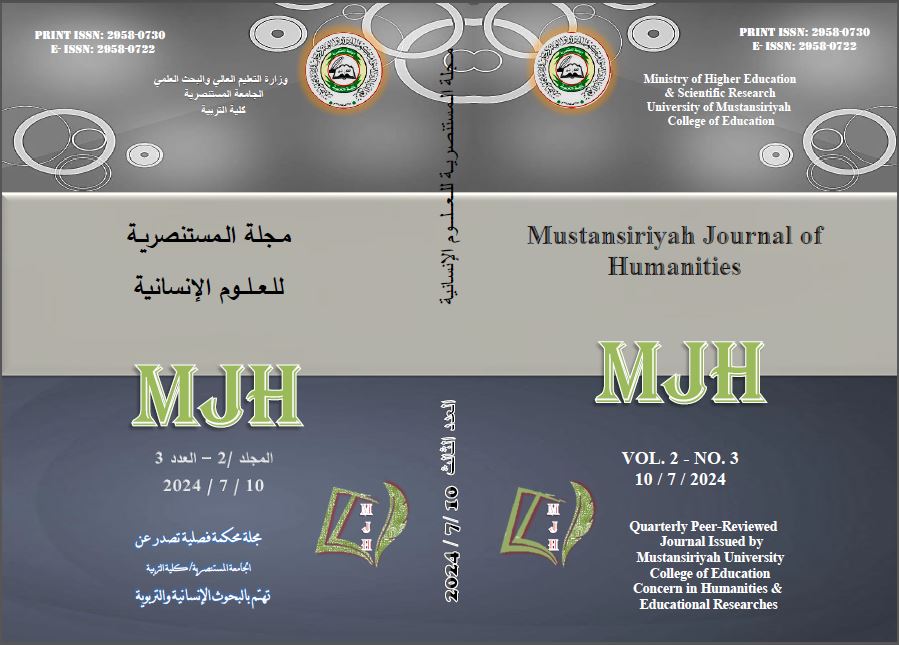The Mind Power and Quiet Ego with Teachers A comparative study
DOI:
https://doi.org/10.47831/mjh.v2i3.365Keywords:
mind power, quiet ego, teachersAbstract
The ongoing study aims to identify the cognitive vitality among secondary school educators, along with the importance of statistical variances in cognitive vitality based on gender (males vs. females). Furthermore, it seeks to investigate the subdued self-concept among secondary school educators and the statistical discrepancies in the subdued self-concept based on gender (males vs. females). Additionally, it endeavors to scrutinize the statistical variances in the subdued self-concept based on cognitive vitality among secondary school educators. In order to accomplish the aims of the ongoing study, the investigator utilized the descriptive comparative approach to attain the research outcomes. The investigator utilized the Quiet Ego Scale developed by Hassan (2020) and the Mental Energy Scale created by Ibrahim (2018) to align with the current research community and streamline the process of adapting measurement instruments. These scales are relatively contemporary. The research population comprised educators in Baghdad Al-Rusafa Governorate for the academic year 2022/2023. The current research sample encompassed 140 educators, and data were analyzed utilizing the Statistical Package for the Social Sciences (SPSS). The findings are outlined as follows: The prevalent cognitive vitality style among educators is the sensory-sequential style. There were no statistically notable variances in cognitive vitality based on gender (males vs. females). Educators exhibit a heightened level of subdued self-concept. There were no statistically significant variances in the subdued self-concept based on gender (males vs. females). There exists a distinction in the subdued self-concept based on the four modalities of cognitive vitality, with a preference for the abstract-sequential style among educators. Drawing from these findings, the investigator put forward several recommendations and suggestions.





